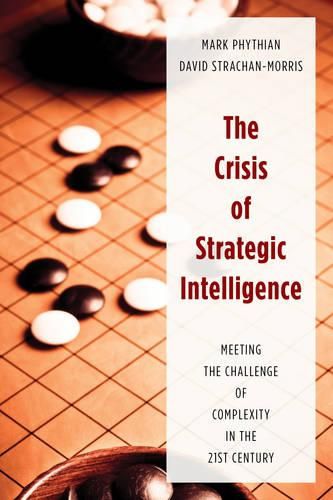Readings Newsletter
Become a Readings Member to make your shopping experience even easier.
Sign in or sign up for free!
You’re not far away from qualifying for FREE standard shipping within Australia
You’ve qualified for FREE standard shipping within Australia
The cart is loading…






Today, strategic intelligence is in a state of crisis resulting from its inability to cope with the complexity of the 21st-century security environment. It is losing its relevance and needs to adapt to regain its utility. This has created a paradox in which intelligence agencies in the UK and the US have recognized the key role strategic intelligence needs to play, yet have not carried out any substantive reform. Arriving at a better understanding of what strategic intelligence means involves recognizing that it has evolved since the Cold War, as the idea of strategy itself had to adapt to an era characterized by a multiplicity of often unconnected challenges.
This text aims to address the crisis and resolve the paradox by clearly explaining how strategic intelligence can be reformed and by providing a model that can be used by those seeking to understand this new era of risk and uncertainty. The central argument is that if intelligence agencies have a clearer idea of the intentions of policy makers and what their worldview is, then it becomes easier for them to focus their efforts on actors and events that are likely to have an impact upon policy. They will also cope better with uncertainty by having a framework within which to interpret unexpected events as they unfold.
Combining their backgrounds as an intelligence scholar and a practitioner, the authors use many real-world examples to explain the role of strategic intelligence. Intelligence failures are also discussed. These illustrate how threat, risk, and uncertainty are concepts that vary depending on the actors, their intentions, their actions, and the impact these three factors have on the existing environment.
$9.00 standard shipping within Australia
FREE standard shipping within Australia for orders over $100.00
Express & International shipping calculated at checkout
Stock availability can be subject to change without notice. We recommend calling the shop or contacting our online team to check availability of low stock items. Please see our Shopping Online page for more details.
Today, strategic intelligence is in a state of crisis resulting from its inability to cope with the complexity of the 21st-century security environment. It is losing its relevance and needs to adapt to regain its utility. This has created a paradox in which intelligence agencies in the UK and the US have recognized the key role strategic intelligence needs to play, yet have not carried out any substantive reform. Arriving at a better understanding of what strategic intelligence means involves recognizing that it has evolved since the Cold War, as the idea of strategy itself had to adapt to an era characterized by a multiplicity of often unconnected challenges.
This text aims to address the crisis and resolve the paradox by clearly explaining how strategic intelligence can be reformed and by providing a model that can be used by those seeking to understand this new era of risk and uncertainty. The central argument is that if intelligence agencies have a clearer idea of the intentions of policy makers and what their worldview is, then it becomes easier for them to focus their efforts on actors and events that are likely to have an impact upon policy. They will also cope better with uncertainty by having a framework within which to interpret unexpected events as they unfold.
Combining their backgrounds as an intelligence scholar and a practitioner, the authors use many real-world examples to explain the role of strategic intelligence. Intelligence failures are also discussed. These illustrate how threat, risk, and uncertainty are concepts that vary depending on the actors, their intentions, their actions, and the impact these three factors have on the existing environment.